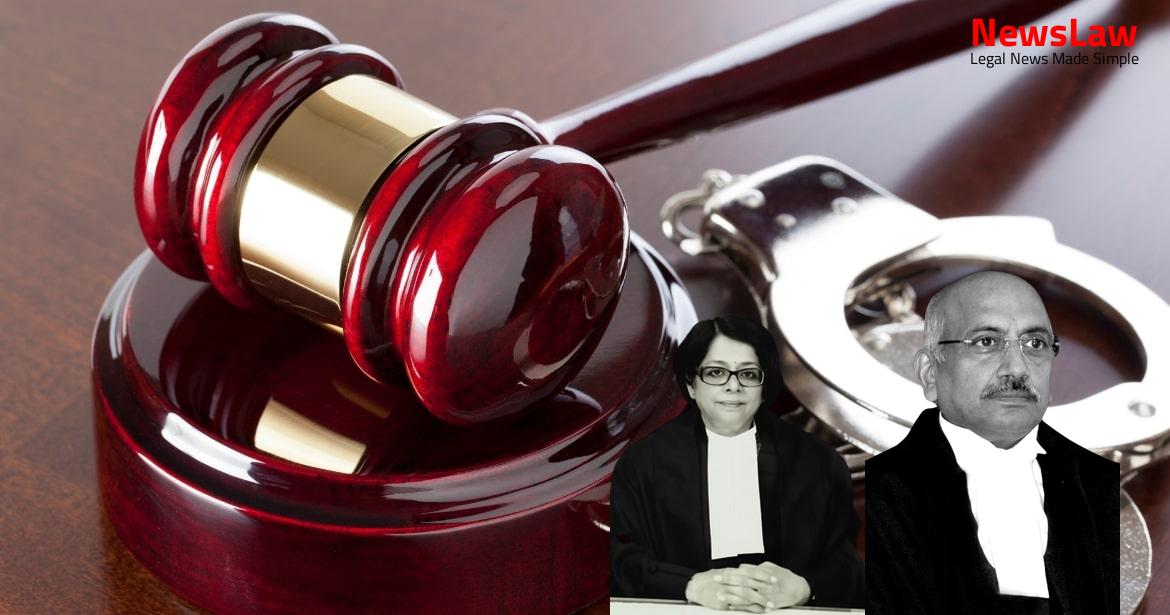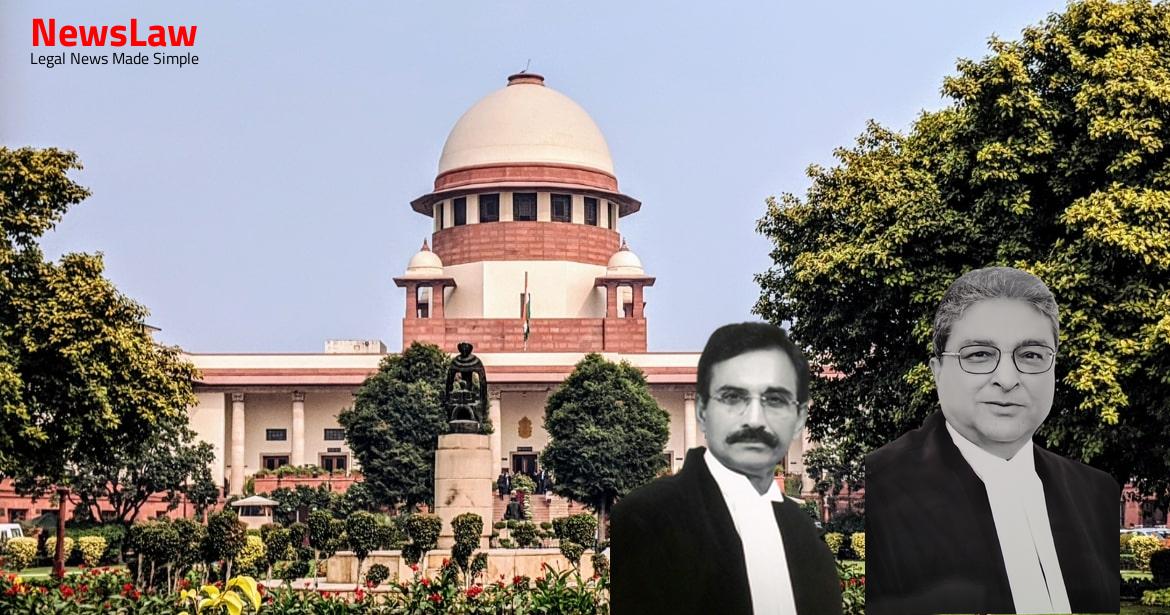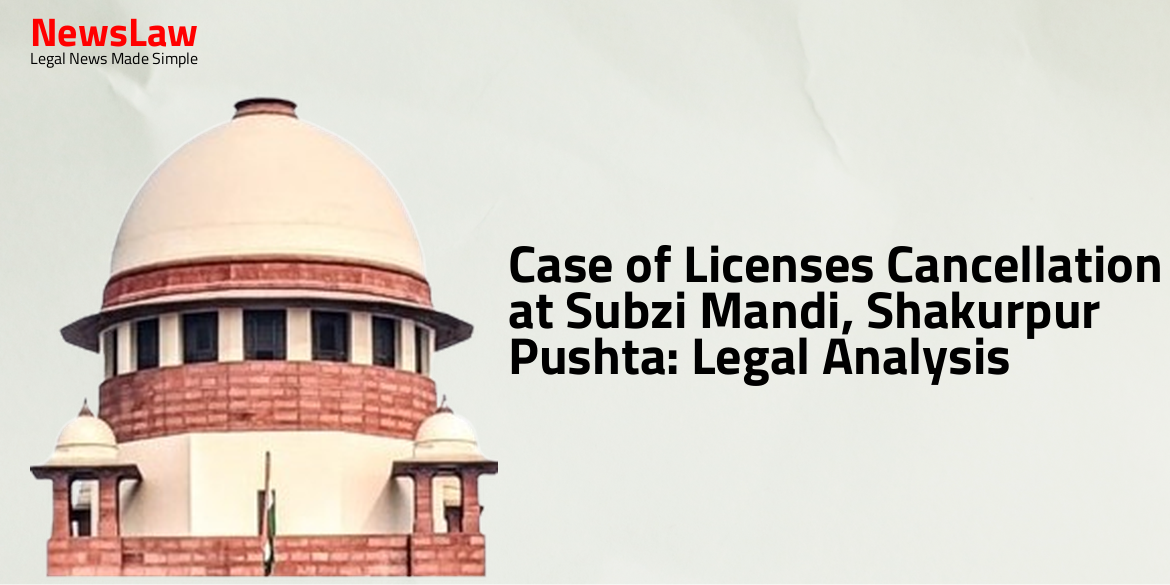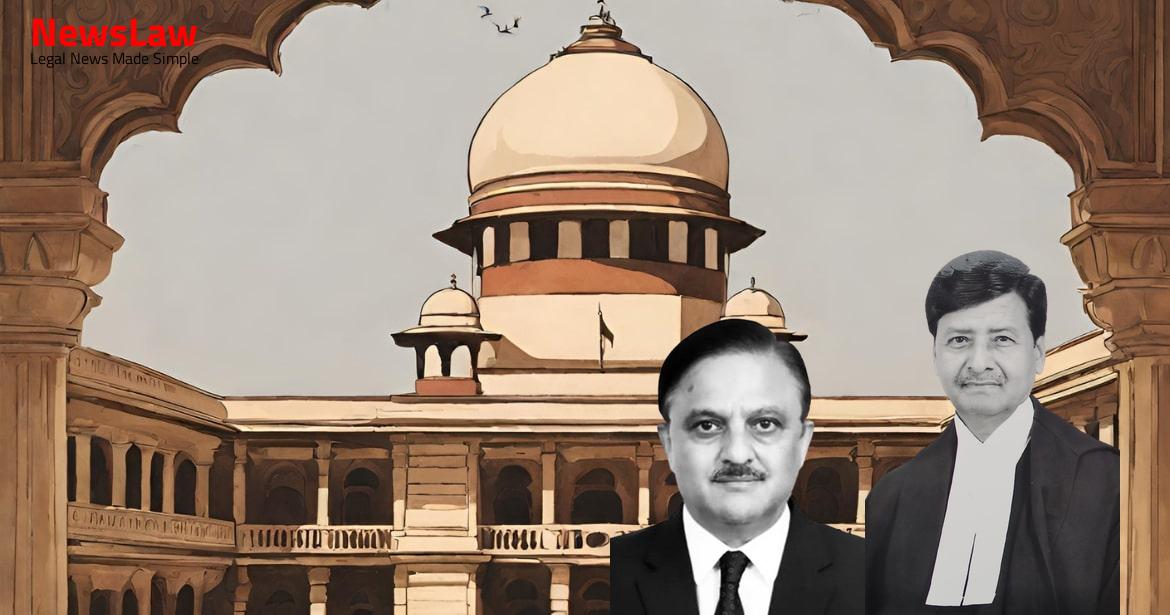The legal case delves into the court’s analysis of the term ‘first due’ in the Electricity Act, focusing on the implications in cases of billing errors. The court’s interpretation sheds light on when the amount becomes ‘first due’ and the licensee’s power to disconnect electricity supply after a specific period. Stay tuned for a breakdown of the legal intricacies in this significant case.
Facts
- The respondent was issued a bill demanding payment of Rs.29,604/- for the period July, 2009 to September, 2011.
- The additional demand for consumption of electricity for the mentioned period was raised based on an internal audit conducted by the department.
- The District Forum initially allowed the consumer complaint stating that the additional demand was time-barred.
- Subsequently, the State Commission allowed the appeal of the licensee company and set aside the District Forum’s order.
- The National Commission held that the additional demand was barred by limitation under Section 56(2) of the Electricity Act, 2003.
- The licensee company challenged the National Commission’s final judgment by filing Civil Appeals before this Court.
Also Read: Legal Analysis on Arbitration Petition Limitation Period
Issue
- The issues to be considered in the present Civil Appeal are the interpretation of the term ‘first due’ in Section 56(2) of the Electricity Act, 2003.
- It includes determining when the amount becomes ‘first due’ in the case of a wrong billing tariff due to a mistake.
- A key aspect to be addressed is whether the licensee company can resort to disconnecting electricity supply after two years in case of a mistake in billing.
- The factual background of the case involves billing by the licensee company under Tariff Code 4400 @Rs.1.65 per unit for the period of July 2009 to September 2011.
Also Read: Analysis of High Courts’ Jurisdiction and Court Orders Under Article 142
Arguments
- Mr. Puneet Jain represented the licensee company in the case.
- He argued that the licensee company can exercise the power to disconnect electricity supply under Section 56(1) of the Act.
- This power can be used when a consumer neglects to pay electricity charges or any other sums due and payable.
Also Read: Electoral Malpractices in Mayor Election
Analysis
- Section 24 of the Indian Electricity Act, 1910 allows a licensee to disconnect the supply to a consumer who neglects to pay their electricity charges after giving a seven-day notice.
- The consumer can dispute the charges raised by the licensee through legal avenues such as consumer fora, arbitration, or a suit for declaration and injunction.
- No sum due from a consumer can be recovered after two years from the date when it first became due unless continuously shown as arrears of charges for electricity supplied.
- Section 56 of the Act deals with disconnection of electricity supply for default in payment, with provisions for notice and conditions under which disconnection can occur.
- The Standing Committee of Energy noted similarities between Section 56 of the 2003 Act and Section 24 of the 1910 Act, along with the restriction on recovery of arrears prior to two years.
- Sub-section (2) of Section 56 specifies that no sum due from a consumer shall be recoverable after two years unless continuously shown as arrears of charges, and disconnection is prohibited beyond this period.
- The proviso to Section 56(1) outlines exceptions where disconnection can be avoided by depositing the disputed amount or average charges paid over preceding months.
- The power to disconnect under Section 56(1) is contingent upon a consumer neglecting to pay a sum due within the stipulated time, following a demand from the licensee.
- The term ‘due’ in the context of Section 56 refers to the amount quantified in the bill raised by the licensee.
- The limitation period of two years starts from the date when the bill is originally raised by the licensee.
- If a mistake is detected after the expiry of the two-year period, the licensee can raise a supplementary bill but cannot disconnect the electricity supply for non-payment.
- The two-year limitation period under Section 56(2) does not preclude the licensee from raising a supplementary demand after the limitation period has expired.
- The consumer’s obligation to pay electricity charges arises after the bill is issued by the licensee company.
- The Electricity Act, 2003 aims to prevent the licensee from disconnecting electricity supply for unpaid dues beyond the two-year limitation period.
- The limitation period in case of a mistake starts running from the date when the mistake is discovered, as per the Limitation Act, 1963.
- The Act does not empower the licensee to resort to disconnection of electricity supply for recovery of additional demands.
- The period of limitation under Section 56(2) cannot be extended by raising a supplementary bill.
- Section 17(1)(c) of the Limitation Act, 1963 provides that the period of limitation for a suit based on mistake does not begin to run until the plaintiff discovers the mistake or could have reasonably discovered it.
- The case of payment made under a mistake of law differs from a mistake of fact in terms of limitation.
- In the Swastic Industries v. Maharashtra State Electricity Board case, the court emphasized the right to recover charges and the authority to discontinue the supply of electricity for non-payment.
- Sub-section (1) of Section 56 grants the license company the right to disconnect electricity supply if the consumer neglects to pay dues.
- The concept of electricity being considered as ‘goods’ was established by the State of Andhra Pradesh v. National Thermal Power Corporation Ltd case.
- The learned Amicus Curiae highlighted the empowerment of licensees to disconnect electricity supply in case of consumer non-payment under Section 56(1) of the Act.
- The licensee company can seek legal remedies for the recovery of additional demand.
- The licensee company is not allowed to disconnect the supply of electricity under sub-section (2) of Section 56 of the Act.
Decision
- The period of limitation commences from the date of discovery of the mistake i.e. 18.03.2014.
- Mr. Devashish Bharuka, Advocate assisted the Court as Amicus Curiae.
- The Civil Appeals are disposed of according to the mentioned terms.
- All pending Applications, if any, are disposed of accordingly.
Case Title: ASSISTANT ENGINEER (D1) AJMER VIDYUT VITRAN NIGAM LIMITED Vs. RAHAMATULLAH KHAN ALIAS RAHAMJULLA (2020 INSC 205)
Case Number: C.A. No.-001672-001672 / 2020



